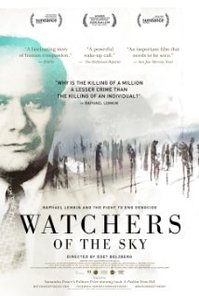As we approach the 100th Anniversary of the Armenian Genocide, The Center for Holocaust and Genocide Studies, the Human Rights Program and the Institute for Global Studies will be hosting three days of events to commemorate this centennial. The events will include the Arsham and Charlotte Ohanessian Lecture featuring Professor Bedros Der Matossian, which is open to the public (April 23), a student conference, entitled "One Hundred Years of Genocide" (April 24) and a K-16 teacher workshop (April 25). The objectives of these events are to promote public understanding of the genocide and the fates of those who lost their lives and those who escaped. The events will also analyze responses by the international community (and/or lack thereof), and discuss the long-term implications for international policy and actions to prevent and respond to genocide. In addition to these events the Armenian Community of Minnesota will also be commemorating the genocide with there own special programming.
The student conference seeks to bring together graduate and advanced undergraduate students from different disciplines that are working on the Armenian or other episodes of genocide and mass violence.To this end, we are seeking a broad range of papers that examine but are not limited to the following topics:
The Armenian Genocide: Historical and socio-political paths leading to the genocide; the role of the international community, testimonials of survivors; public memory; etc.
Genocide and the international community: Intervention or lack thereof in genocides and large-scale political violence; potential responses to genocide and mass violence; the role of neighboring countries, and other countries.
Genocide and the media: International and local media coverage of genocide; hate media and genocide incitement; representations of mass violence and its (cognitive and ethical) limits; representations in popular media such as movies, documentaries, music etc.
Representing mass atrocity before Lemkin: the Armenian genocide has been referred to as a Crime with no name because it occurred before the Genocide Convention. How does this fact affect how we understand and talk about mass atrocities that occurred before December 9th 1948, including the Armenian genocide?
Genocide Awareness and Advocacy in the Age of Digital Communications: Social media campaigns to promote awareness and response, traditional vs. new technology platforms to document genocide and mass violence, affect organization and mobilization of citizens, etc.
Justice and politics of reconciliation after genocide: The role and effectiveness of judicial processes and transitional justice mechanisms such as International Tribunals, truth commissions and reparations.
Genocide education and public memory: Teaching about genocide and mass atrocities; the representation of the Armenian genocide in history and other textbooks. Memorials, museums and commemoration days/weeks; the politics of commemoration; the use of human remains in memorials and related issues.
Abstracts not exceeding 300 words and a 2 page CV should be sent to Wahutu j. Siguru Siguru@umn.edu by the 15th of January 2015.
The conference was made possible by funding from the Ohanessian Endowment Fund for Justice and Peace Studies at The Minneapolis Foundation and is sponsored by The Institute for Global Studies, Center for Holocaust and Genocide Studies, the Arsham and Charlotte Ohanessian Chair, and the Human Rights Program at the University of Minnesota.

